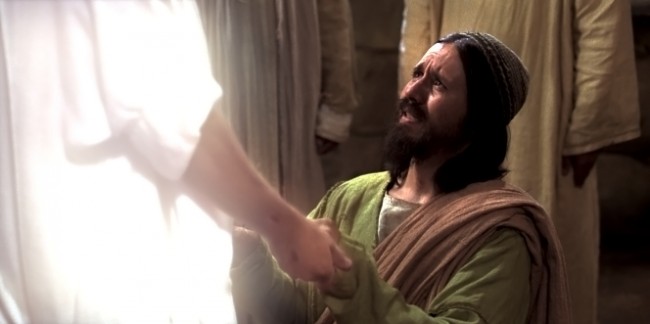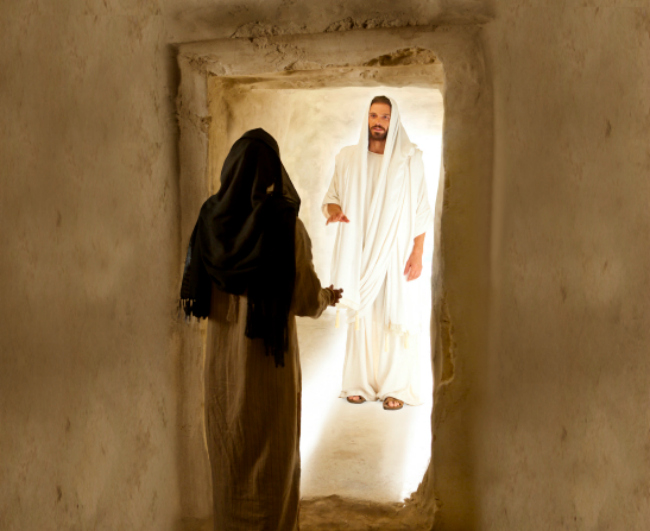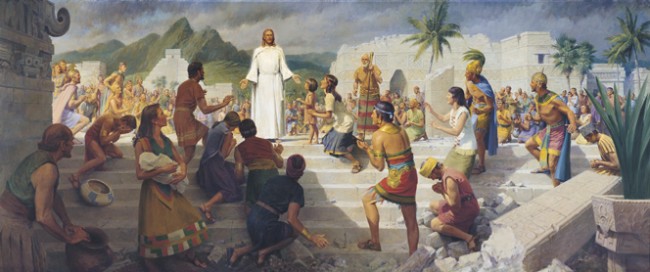How Does Christ’s Resurrection Affect You?
“I am he that liveth, and was dead; and, behold, I am alive for evermore” (Revelation 1:18).
It was at great grandmother Edith Smith Bushman’s viewing that I remember first sharing my faith in Jesus Christ’s resurrection. Great grandmother’s lifeless body looked grim, devoid of all of her characteristic wit and wisdom. My three-year-old sister looked at her and was terrified.
Later, I recognized two little shoes poking out from under a curtain. I moved the curtain back and sat down by her. In my ten-year-old wisdom, I asked about her fear and then explained death. She didn’t find any consolation until I told her about Jesus and His resurrection.
With newfound hope, my sister let me pick her up and return to look at great grandmother’s body. Now, great grandmother still looked grim, but also like she was sleeping, and waiting for her resurrection. It’s amazing that a concept with such a big word with substantial ramifications can be felt and evoke peace in a small, fearful child.
Simply put, to be resurrected means that after death, a spirit is reunited with its body to form an immortal union. The simple definition by itself is mind-blowing, but the effects of the Savior’s resurrection are so vast and profound that, according to Joseph Smith, it forms the foundational principle of Mormonism:
[pull_quote_center]The fundamental principles of our religion are the testimony of the Apostles and Prophets, concerning Jesus Christ, that He died, was buried, and rose again the third day, and ascended into heaven; and all other things which pertain to our religion are only appendages to it.”[/pull_quote_center]
Effects of the Lord’s Resurrection

The Savior’s Atonement to overcome the Fall culminated in the resurrection. Whereas the Fall brought death and sin to the world, Jesus Christ paid the price for sin and broke the bands of spiritual and physical death.
Our lives were in peril! The Book of Mormon prophet Jacob described our fate had there been no resurrection. Not only would we suffer an eternal spiritual death, but we would have also become subject to the devil.
“O the wisdom of God, his mercy and grace! For behold, if the flesh should rise no more our spirits must become subject to that angel who fell from before the presence of the Eternal God, and became the devil, to rise no more. And our spirits must have become like unto him, and we become devils, angels to a devil, to be shut out from the presence of our God, and to remain with the father of lies, in misery, like unto himself.”
In addition to rescuing us from the devil’s grasp, the resurrection allows us to have fullness of joy. “The elements are eternal, and spirit and element, inseparably connected, receive a fullness of joy; And when separated, man cannot receive a fullness of joy.”
Resurrection promises immortality to everyone born on this earth. This is Christ’s free gift to all who accepted mortality. The Fall plunged everyone into death. The Resurrection retrieves everyone from death, and even pain and sickness. Everything will feel the effect of the resurrection, even the earth.
The Lord’s resurrection will ultimately triumph over everything related to time and mortality.
What the Resurrection Teaches about Jesus Christ

The resurrection of the Lord evidences Jesus’ inherent and perpetual independence. He acted and was not acted upon. “Therefore doth my Father love me, because I lay down my life, that I might take it again. No man taketh it from me, but I lay it down of myself. I have power to lay it down, and I have power to take it again” (John 10:18).
Jesus is not bound to time or politics or another power. Elder D. Todd Christofferson explained that He is Himself everlastingly, “Both as Jehovah and Messiah, He is the great I Am, the self-existing God.”
Because He resurrected, He had to be a God. When resurrected, Christ became testator to His own divinity. He is the Son of God, the creator of heaven and earth, the Savior of the world. If they hadn’t before, His words took on full efficacy after He rose from the dead in glory. He can be believed, and there is fruition in faith.
Because He resurrected, the material world around us takes on greater meaning. His resurrected body consists of an eternal spirit composed of fine, pure matter and a physical body composed of flesh and bones. Together and resurrected, His spirit and body comprise an eternal soul.
What the Resurrection of Christ Teaches about Us

Because He resurrected, we look intently at His parentage, father and mother. They are Gods in heaven. They are exalted persons—of flesh and bones. We are their children, begotten in the spirit and given the opportunity to progress in mortality.
God the Father directs of the plan of salvation and provided His Only Begotten Son to redeem mankind. And He has.
Having redeemed mankind from the effects of the Fall, Jesus became the rightful judge of mankind. Elder D. Todd Christofferson explained that because Jesus steps into the place of justice “no injustice in mortality is permanent, even death, for He restores life again. No injury, disability, betrayal, or abuse goes uncompensated in the end because of His ultimate justice and mercy. By the same token, we are all accountable to Him for our lives, our choices, and our actions, even our thoughts. Because He redeemed us from the Fall, our lives are in reality His.”
Jesus Christ said we should be like Him. Through prophets, we’re taught that we should act instead of being acted upon. He commands us to have dominion over ourselves. But, He never forces our will.
Because of His resurrection, we see how important our agency and identity really is. He gave His all to give us a choice. We can accept His gift of immortality and be done or we can accept His gift of immortality and take the opportunity to stretch and grow and overcome — His grace then enables us to become like Him and to live in the presence of God forever.

Jesus Christ’s resurrection affects every aspect of our lives—retrieving us from death and sin and enabling us to receive joy. It conquers time and space. It teaches us about the Lord’s divinity and our eternal parentage.
Additional Resources:
The Life Arising from Death by Samuel B. Hislop
Easter, Hope, and the Death of Our Daughter by Robert Hatch


